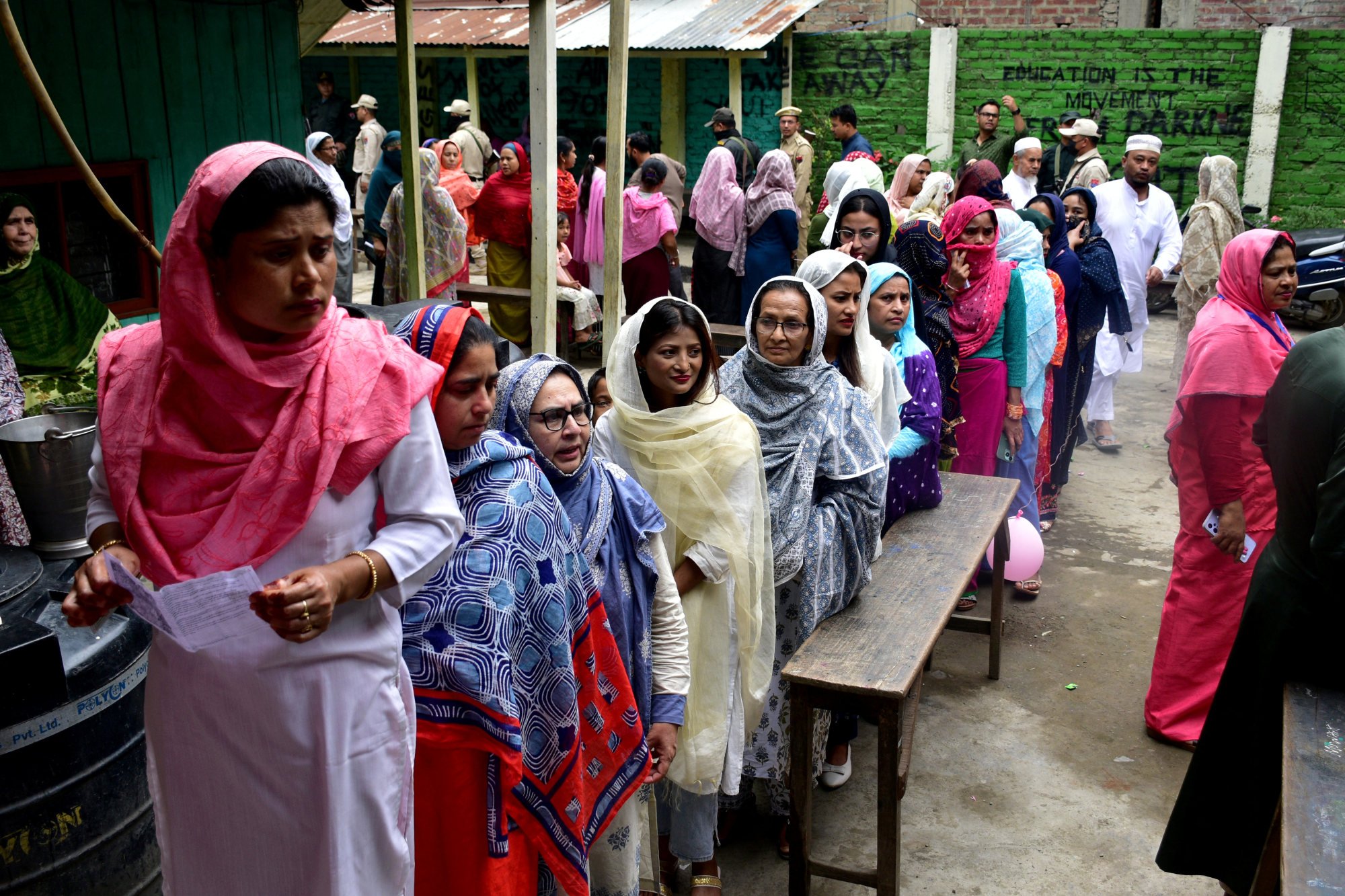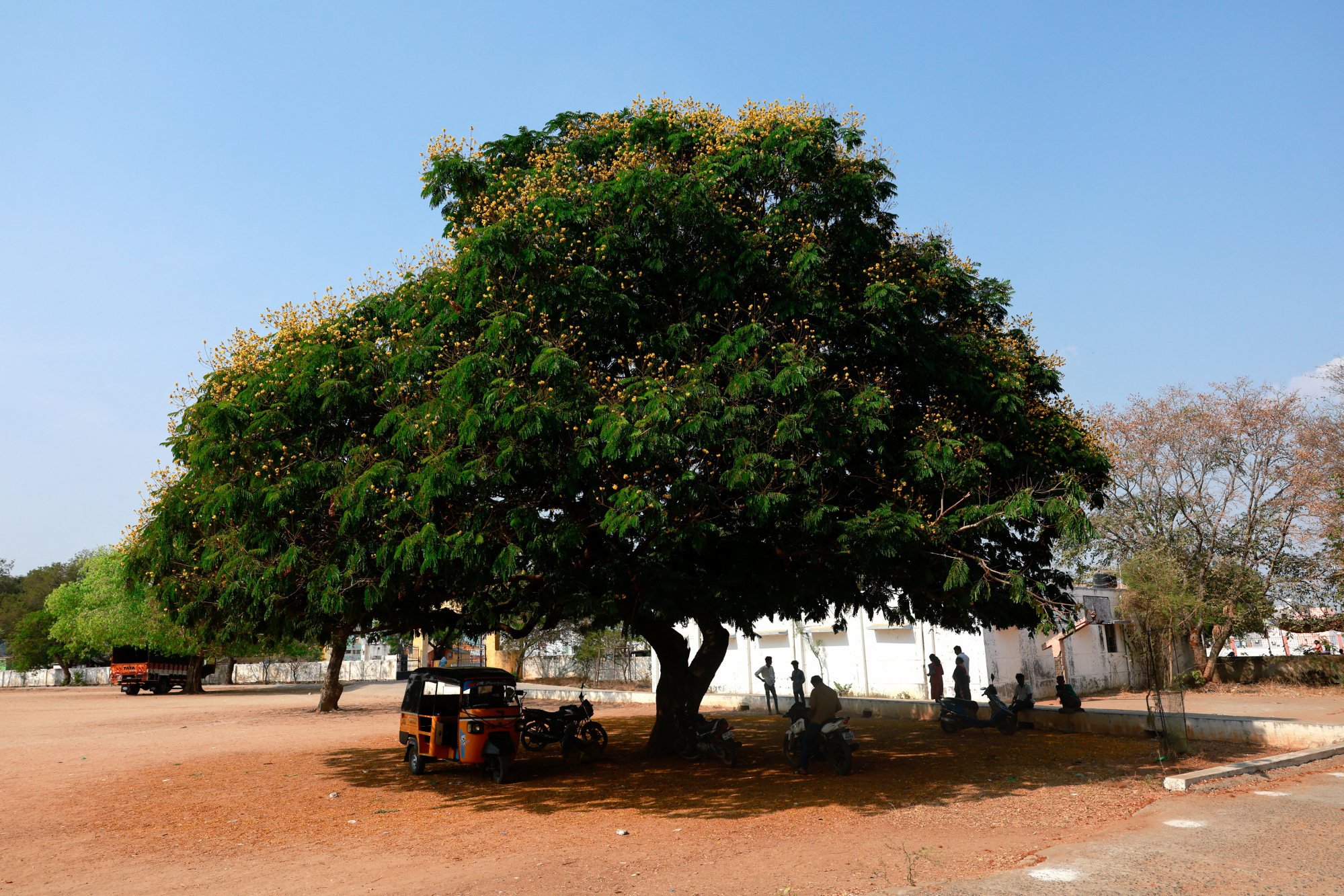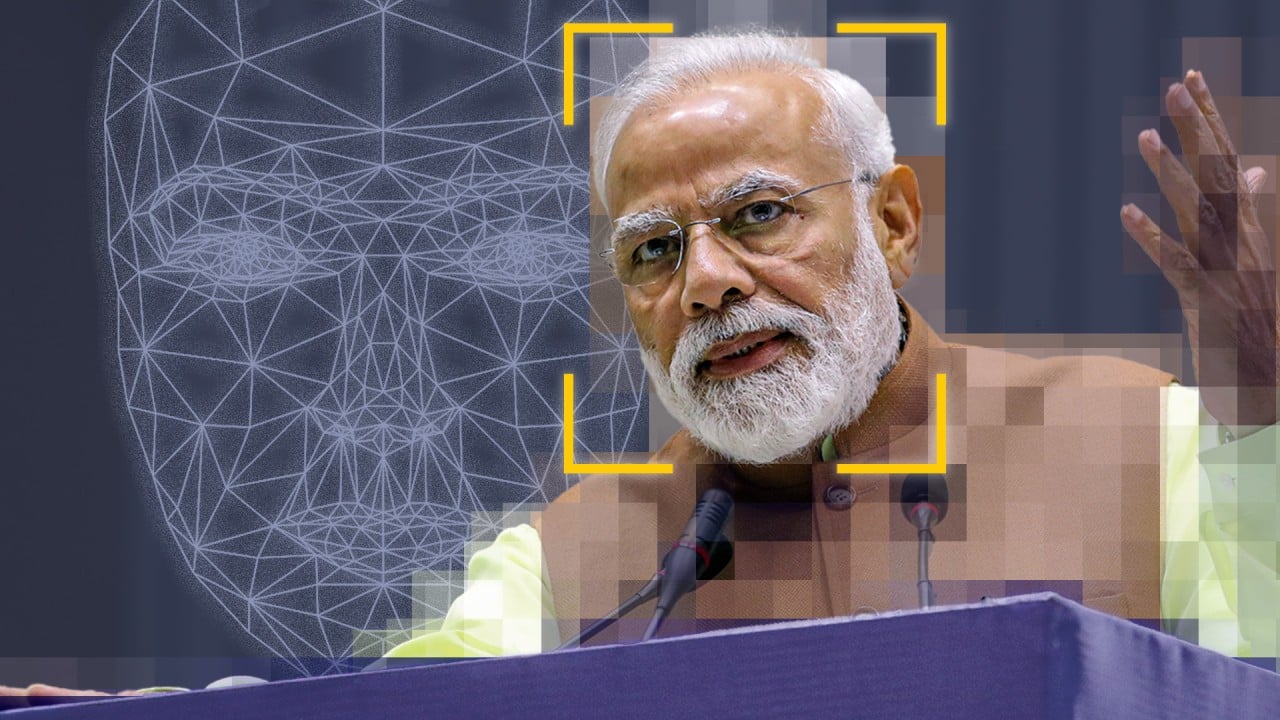India’s Meteorological Department, the national weather service, warned earlier this month that temperatures from April until June would be abnormally hot across most of the country.

Environmentalists and public health experts have expressed concerns about the feasibility of proceeding with political rallies and voting as scheduled. They emphasise the importance of implementing appropriate risk-management measures, so as to prevent voters being exposed to serious health risks.
They also argue that the authorities seem oblivious to the dangers of the scorching heatwave already gripping the country.
Beating the heat
Aditya Valiathan Pillai, a fellow at the New Delhi-based Sustainable Futures Collaborative who coordinates climate adaptation and resilience research, told This Week in Asia that voters would need protection at polling booths during this year’s elections.
“The first priority is to ensure that each polling booth provides adequate shade cover. Lengthy queues under the scorching sun can pose serious health risks to voters, particularly those engaged in early morning work or physical labour before casting their ballots,” he said.
Voting stations should offer cooling facilities and a designated space for people experiencing heatstroke symptoms, Pillai said, as well as access to drinking water.
Ambulances equipped with air conditioning should also be on standby in areas predicted to face severe heatwaves, he said.

On Friday, the Meteorological Department issued a severe heat alert for Odisha, Jharkhand, Andhra Pradesh, Telangana, Tamil Nadu and other states, warning that they could experience temperatures as high as 45 degrees Celsius (113 degrees Fahrenheit).
Anjal Prakash, an adjunct professor at the Bharti Institute of Public Policy who specialises in water resource research and management, said that the forecast had raised concerns.
“Authorities have prioritised ensuring sufficient access to hydration, shaded waiting areas, and medical assistance at polling stations,” he told This Week in Asia. “Additionally, public awareness campaigns on heat-related illnesses and precautions are imperative, which could be added. The effectiveness of these measures depends on their thoroughness and timely implementation.”
‘Live with heatwaves’: why Singapore and other Asian nations must adapt
‘Live with heatwaves’: why Singapore and other Asian nations must adapt
Dehydration, heatstroke and the exacerbation of existing health conditions, particularly among vulnerable people, were the primary concerns amid the intense heatwave, Prakash said.
“To mitigate these risks, the government may prioritise distributing free drinking water, establishing cooling centres in densely populated areas, conducting public awareness campaigns on heat safety measures, and implementing work and school schedule adjustments to avoid peak heat hours,” he said.
‘Heat gives very little warning’
During the elections, political parties will be organising large-scale rallies and mobilising ground staff to attract potential voters. Pillai stressed the importance of prioritising safety measures at these gatherings, such as by installing accurate temperature displays and offering clear instructions on precautions to minimise the risks of developing heat-related illnesses.
“People deserve to have proper access and clear information about the risks involved,” he said. “They can make informed choices. Heat gives very little warning and when a person feels a little bit tired, they can collapse and their body temperature can rise. In these situations, if you don’t have access to cooling measures, their life is at risk. These basic principles need to be enforced and implemented effectively.”
Alarmed by the soaring temperatures, India’s Health Ministry held a meeting with the National Disaster Management Authority last week to assess how prepared the country was to tackle any emergencies that might arise.
Authorities have issued advisories listing guidelines on how to beat the heat, such as avoiding being out in the sun between noon and 3pm, wearing cotton clothes, and drinking plenty of fluids.
Voters in India have generally responded positively to the government’s plans. But in rural areas, some have expressed discontent with the safety measures.
Will India’s long election favour Modi – or throw up a last-minute surprise?
Will India’s long election favour Modi – or throw up a last-minute surprise?
“This is just an advisory of dos and don’ts, but it mostly contradicts the harsh realities people face on the ground. I didn’t see any arrangements for providing shade at my polling booth,” said Mukesh, a voter in Rajasthan who wanted to be identified only by his first name.
“The authorities provided cover for one side, but the crowd was so huge that most people were waiting under the scorching sun.”
Many voters have taken precautions to stay safe while casting their ballots. Some avoided voting during the day, while others brought their own water bottles and umbrellas to polling stations.
Why do India’s general elections take so long to complete?
Why do India’s general elections take so long to complete?
The government plans to create a central database collating data on heatstroke cases and deaths in each state amid the intense summer heat.
India’s Election Commission, meanwhile, has advised electoral officers in each state to raise awareness about the extreme weather and assist voters to endure the scorching heat while casting their ballots.
“We have installed medical camps and are offering scratch coupons to voters who come to vote during early hours,” Dr Renu Poonia, a polling coordinator in Rajasthan, told This Week in Asia.
“They get gifts like T-shirts, watches and sunglasses to motivate them for early voting in order to avoid heatstroke.”


